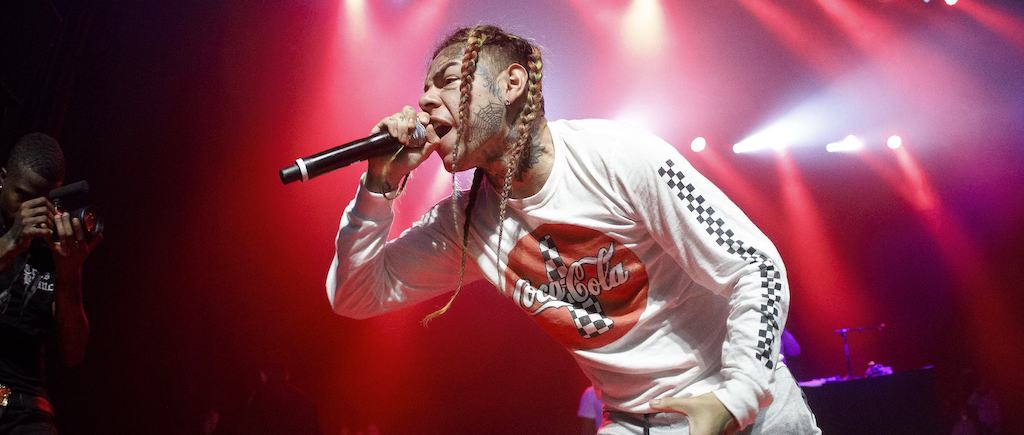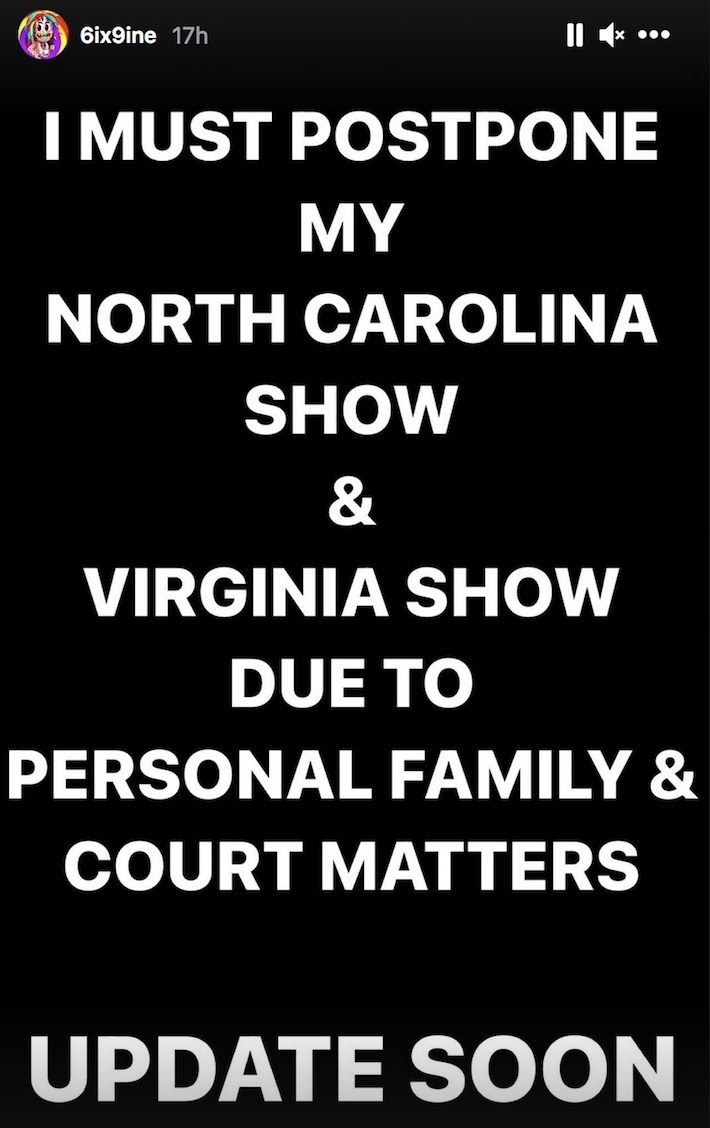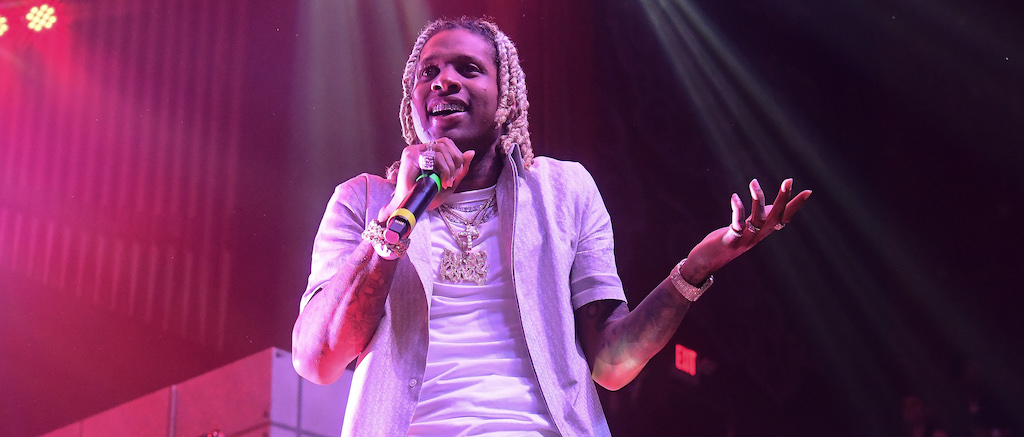In the world of hip-hop media, Wayno has established himself as one of the most respected names. For many, his stint replacing Joe Budden and Star on Everyday Struggle was an introduction to the former A&R, who got his start in the industry working with Roc-a-Fella Records in the early millennium. Upon connecting with the Young Gunz, Wayno quickly found himself in some high-profile studio sessions, bearing witness to albums like Beanie Sigel’s The B. Coming, JAY-Z’s Blueprint 2, and Freeway’s Philadelphia Freeway.
As a media host, his honest takes, sly sense of humor, and clear code of honor earned him a loyal following. Though the days of Everyday Struggle have come to an end, Wayno quickly secured a new position on Amazon Music, where he is currently in the midst of hosting his own show, Connected. Tomorrow, the series’ second episode is set to air at 2 PM PST on Twitch, featuring special guests G Herbo and Vince Staples.
“I’ve managed artists before, and it’s not that they don’t want to tell their story, but they just think that everybody’s out for them,” explains Wayno, opening up about the importance of forging sincere connections with artists. “They think that everybody they talk to is either out to make them look bad or look foolish. If we have integrity with how we preserve hip-hop and hip-hop stories, then we gotta respect the artists.”
It goes without saying that his thoughtful way with artists is among the many reasons Wayno has reached this point, and his ascent is destined to continue as Connected’s debut season continues to rollout. Ahead of the second episode release, be sure to check out our exclusive interview with Wayno below.

Frazer Harrison/Getty Images
HNHH: What’s up Wayno, how you doing? Congratulations on taking your talents to Amazon Music.
Wayno: Thank you. Thank you so much.
I saw they came through with the billboard in LA.
Yeah man, it’s surreal to me. I never imagined being on billboards in my life. That kind of stuff you dream about as a kid. It’s kind of crazy.
Did you ever think that your media career would come this far? When did you realize this was really starting to gain some serious momentum?
I think I’ve done a few interviews. When I interviewed Nas by myself. A lot of people know that I used to manage Dave East. So I spent a lot of time around Nas but I also grew up on his music. So when I had the moment of like interviewing Nas by myself like I was like wow. That’s when I really felt like it was going to be a career for me.
Obviously, you’re a big Nas fan — honestly, who isn’t? He’s one of the greatest of all time. How did you approach building an interview that you felt was up to his standard? Was that a difficult task?
I wouldn’t say it was difficult. I try to compare almost everything I do in life to basketball, because I wanted to be a basketball player growing up. I just look at it as preparation. I took myself out of knowing Nas. I did business with Nas and I got a great relationship with him and his team so I took myself out of that and put myself in a position where I could ask him questions objectively. I try to stay away from the salacious type stuff, so I really wanted to talk to him about him. I asked him a few questions about how he felt. I asked him about not winning a Grammy in his career, and ironically he won this past Grammy. So those are the things that I wanted to know, and I feel like the people who are fans like me wanted to know. I tried to put myself in that position when I interview.
Definitely. That’s one of the things I really respect about you as an interviewer and a media personality. In a lot of ways your journey reminds me a bit of the late Combat Jack. Working behind the scenes before transitioning into media and really being able to connect with artists on a level they understand. There’s that level of respect there.
Wow, man. I really appreciate that coming from you. I never took journalism or anything I really appreciate that. Combat Jack was one of my OGs, so I appreciate that for real.
A part of why I think there’s a parallel there is that ability to connect with artists and gain their trust on a creative level. Obviously, you’ve done A&Ring as well. Can you walk me through how you approach that A&R process?
I started doing A&R at 17 or 18 years old. Really around 19, when I got my job at Roc-A-Fella records. I didn’t need to know that A&R was A&R. It was just me being in the studio with the guys, listening to music, giving suggestions, trying to provide whatever it was that they needed. I pride myself on being very resourceful. My process with A&R was always being resourceful, being able to dig in and looking to see how I could help. That’s what I tried to do with media, talking with artists. It’s kind of the same as doing A&R. People just want to feel comfortable. Everybody has a job, and everybody wants to go home with feeling like it went well. I try to make sure I create an environment where whenever someone has to deal with you at any level, they just feel good.

Prince Williams/Wireimage/Getty Images
Did artists ever look to you for guidance on something like a tracklist or an album sequence?
Absolutely. I’ve worked with a lot of people. Early in my career, it was State Property, the Young Gunz, and Beanie Sigel specifically — his mixtapes and albums. And of course, when I was managing Dave East, I worked a lot with his music. He would create the music but I would help the tracklist, or even making records at different points in time. Even more recently with Sada Baby, just working with him and putting his mixtapes together and stuff like that.
Cool. I ask because I’m a big fan of the album as a listening experience. Hip-hop is a culture where albums are really celebrated. We look back on classic albums that have come to define so much about music today? But these days, I feel that process has become endangered in a way. It’s almost like the album doesn’t mean what it used to. Do you think there’s something there?
I think that they still do. A lot of people try to put it on the attention span of this generation and the attention span of people. I think that when it comes to like how we celebrate modern music, it’s all dependent upon how it’s delivered. Look at the Migos. With them putting out [Culture 3] it feels like a celebration because they put together a really good album. And people are always happy to see that. But it’s about how it was delivered. Dropping the first record with a Temptations sample, “Papa’s A Rolling Stone,” them dressing up like the Blues Boys. I think that albums right now are accepted based on how you present them.
“For the younger kids that are coming up as artists — if I could just put out a single and have a big impact like an album once did, I would probably would put out more singles. Putting together an album is not an easy task.”
For the younger kids that are coming up as artists — if I could just put out a single and have a big impact like an album once did, I would probably would put out more singles. Putting together an album is not an easy task. It takes a lot of time. It takes a lot of direction. I always say: in order to create a really good album, it’s like driving somewhere. You have to have a destination in place and you’re going to take different paths. If I drove to your house you might say which way are you taking. If I say I took this way you might say, Oh, you could have taken this way. I look at it the same way with making albums. You might get to the destination a little bit different but as long as you get to the destination in the way that you want to — and deliver it in a way that people could potentially love — I think that what’s make the difference now.
Before, all we had was albums. We didn’t have much variety. Now we can pick from so much. That’s why the album isn’t looked at the way it’s used to, it’s dependent on how it was delivered.
If you look back in those days, with the artists on Roc-A-Fella and State Property…I look back on some of the albums that came out from those camps at the time. I’m thinking particularly of Beanie Sigel’s The Reason and JAY-Z’s Blueprint 2. They come to mind for me as albums that weren’t necessarily seen as classic albums when they dropped, but now that enough time has passed, I feel like people really look back on them fondly. How does someone come to define a classic? How much time has to pass before a classic is really appreciated for what it is? No one wants to say a brand new album is a classic.
Well, you know it’s ironic that you said Blueprint 2. That was the first album that got recorded when I was around. Today on social media, you see so many people say, you cant call something classic in a day — but immediately when stuff comes out and we don’t like it, we can say we don’t like it. Freeway’s Philadelphia Freeway was another album I was around for around for. Beanie Sigel’s The B. Coming, I actually got a chance to work on that album. The catchphrase for the guys was, “buy one for the car, buy one for the crib, buy two to keep in plastic because it’s a classic.”
I really don’t know how records were determined to be classic, but I know when most artists spend time making a good body of work, they feel like they’re putting out their best. Whether we receive it as the best or not. I think the people determine what is a classic and isn’t by critical acclaim or word of mouth. It’s arguable that Kendrick had three classics. Even if we want to go to Section.80 we could borderline that a classic — but we’re so critical of the time that he spent making these projects. I think that the classic conversation just means something that you can always appreciate and those albums come in different forms. At one point all the albums that were looked at as classics were from the heavy hitters of hip hop, and now these young guys put our projects and we’re like how are they classics? But we’re not giving them the opportunity to consider themselves heavy hitters. That’s for the youth. I once was a youth, I was once one of the kids determining what was hot. I’m not the youth anymore. I just tried to stay connected to youth so I don’t lose my footing.

Prince Williams/Wireimage/Getty Images
Yeah, I feel similar. I’m pretty much the resident old head here at HNHH. Are there any albums in the past four years or so that you feel might have the potential to be called a classic?
In the past four years? I think DAMN. is a classic. I feel like Lil Baby’s My Turn will eventually be considered a classic. IGOR and Flower Boy by Tyler the Creator — those are two of my favorite albums ever. I love those albums. I think that J. Cole’s album that just came out, The Off-Season. Even KOD may potentially be a classic. Summer Walker’s album, I feel like that’s gonna be considered a classic. Young Thug’s So Much Fun.
“I think DAMN. is a classic. I feel like Lil Baby’s My Turn will eventually be considered a classic. IGOR and Flower Boy by Tyler the Creator.”
You got me going now. Pop Smoke’s Meet The Woo 2. I feel like Pop Smoke is the Biggie of this generation. I said that one time before and of course they were trying to give me flack for it. I was 13 going on 14 when Biggie died and I just remember the impact he had on me as a 13-year-old, and how much me and my friends loved his music. I see the same thing with these kids and how they feel [about Pop Smoke’s death]. I know how important his music was to them. His music definitely is going to influence the generation they same way Biggie did.
I understand the comparison. I think you have to throw in something from the Griselda camp as well.
Absolutely. From King To A God. That album is amazing. Burden Of Proof is really raw. You know what I gotta throw in there too? 21 Savage and Metro Boomin’s Savage Mode II. I feel like that album is going to age gracefully, because people are still late on it. We’re still in an era where people still use the term mumble rapper. I think a lot of people still look at 21 like that and they don’t really listen to his words unless they’re a hardcore fan.
Yeah, definitely. Now that you’re taking the lead on your own show, what’s the main goal that you want to accomplish with Connected?
The biggest thing that I want to accomplish with Connected is working with great artists and executives. Having conversations — a lot of artists and executives are friends of mine because we came up around the same time. I just want to establish a platform where people can tell stories, and show the younger generation that they’re capable as well. That’s really big for me. When I was 18, and I decided that I wanted to be in the music industry, I had the Irv Gottis, the Kevin Liles, the Dame Dashes. I had these guys to look at and read their articles. Now, content has changed. So while a kid might not read an article — or they may — I want to provide visual content that these young guys and girls who can say wow, they really doing something positive and I could do that as well. Of course, I want to have great interviews, but more than anything I want to inspire the next generation.
Very cool. Something that’s really important to me is the preservation of hip-hop history. Now if people want to get stories about artists and their past, where do they go? Wikipedia? That’s not the clear picture at all, but I think what shows like with yours, it’s going to give people an outlet to hear directly from the artists. I think the preservation of hip-hop history is a big responsibility the media should hold. How can we improve as the media at large at making sure that hip hop history lives on — especially with an age where information just gets lost in the shuffle?
By having honest convos. I’ve managed artists before, and it’s not that they don’t want to tell their story, but they just think that everybody’s out for them. They think that everybody they talk to is either out to make them look bad or look foolish. If we have integrity with how we preserve hip-hop and hip-hop stories, then we gotta respect the artists — but there also needs to be a line drawn where artists respect the person that is interviewing them. I think that if we can create an environment where we can be honest with each other, and we know that we’re not here to bullshit one another, that we’re here to make each other days better, then all of those stories and everything hip-hop is will be preserved, we’ll be able to tell this forever. But it has to start and end with respect.
“I’ve managed artists before, and it’s not that they don’t want to tell their story, but they just think that everybody’s out for them. They think that everybody they talk to is either out to make them look bad or look foolish.”
Well said. My last question is a little more general, but I think it’s a good note to end on. Off the top of your head — do you have a top 10 MCs list?
Top 10 is always a lot because my ten always changes. I have my all-time and then I have more current. I could get to maybe five. All-time I’m putting Jay Z, Biggie, Nas, Lil Wayne, and Kendrick. For my current list, J. Cole, Drake, and Lil Baby are top three. I gotta put Conway in there, I feel like he needs his respect.
That’s a good list. I really appreciate your time and once again, congratulations on Connected!











